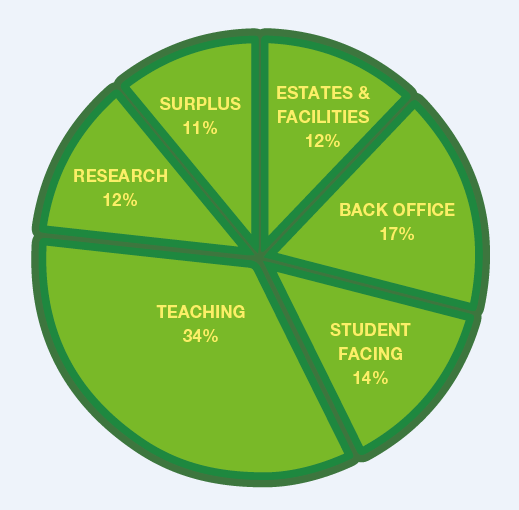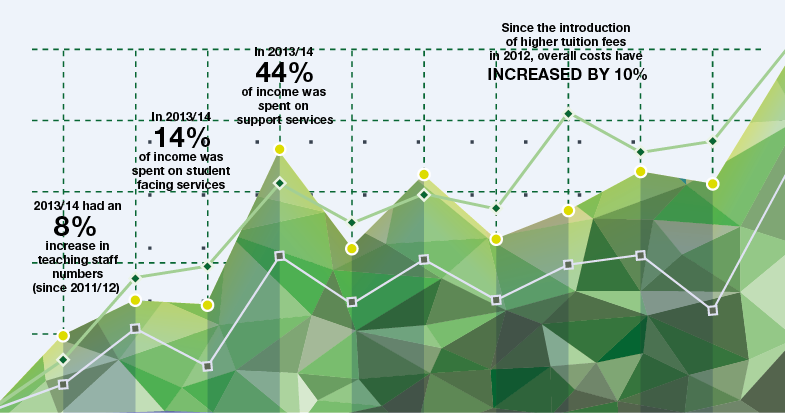University Fees: Where does the £9,000 go?
In a time when universities welcome record numbers of students, Jo Johnson, Minister for Universities and Science has spoken of the work to be done to get more value out of the fees our undergraduates pay.
Life at university is (quite rightly) not just a transactional experience: pay your money; consume information; graduate.
Job done.Well no, job not done in today’s competitive, global marketplace. Students, parents, employers, government and the media all have vested interests in just what happens at university – after all, the leaders of tomorrow are studying at a higher education institution near you as we speak.
So how far does £9,000 per year reach? What do institutions do with it?
Value for money will rapidly become a key metric by which students choose their prospective place of study. The battlegrounds are being drawn up. Is this information readily available and how can it be used?
Based on data collected since the introduction of higher tuition fees in 2012, overall costs have increased by 10%, in line with fee increases.
But where exactly is this extra income being spent?
In 2013/14 we can see that over 40% of income was spent on support services, with 14% on student facing services. What is also interesting is the range of spend and the changes since 2011/12.

*% figures calculated from spend per FTE student
| Min | Max | Average | |
| Estates and facilities | 7% | 19% | 12% |
| Back Office | 14% | 21% | 17% |
| Student Facing | 10% | 22% | 14% |
| Teaching | 27% | 41% | 34% |
| Research | 4% | 35% | 12% |

*based on our 2013/14 financial benchmarking data
What is your position? Where would you like to be? And how do you compare to others?
The new Green Paper released by Jo Johnson MP and the Department for Business, Innovation & Skills sets out the Higher Education landscape into a number of key areas such as driving up the quality of teaching; widening participation amongst harder to reach groups; reducing the regulatory burden and creating a level playing field for new competitors; and increasing the efficiency and strategic impact of our research.
Take teaching quality and the student experience for instance - are increasing numbers of teaching staff resulting in smaller class sizes and better quality teaching? The new Teaching Excellence Framework (TEF) will be vital to driving quality upwards and in some institutions it will force some tough decisions to be taken.
It doesn't stop at teaching however, institutions who invest in resources available to students in order to enhance the overall student experience will be the real winners. Along with their students of course! All these initiatives will be reflected in university rankings which will continue to grow in importance for all universities.

More about us:
With over 100 collective years of experience, our benchmarking consultancy team can show you, in unrivalled detail, how you compare to your peers.
We analyse every area of activity from your overall teaching pay costs and the number of guidance and support staff right down to your spend on stationery and telephones - over 750 objective measurements. What’s more, our new web reporting tool ‘Benchmark+’, makes it easier than ever before to use the data for strategic planning.
To talk to one of the benchmarking team or arrange a meeting to discuss how we can help you, please contact Nick Pidgeon on 0115 934 7378 or nick.pidgeon@tribalgroup.com
To see more about our financial benchmarking solution, please click here.
TOPICS:
SHARE THIS ARTICLE:


